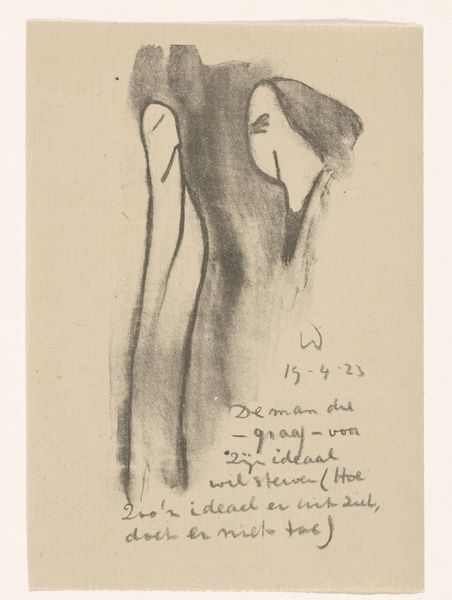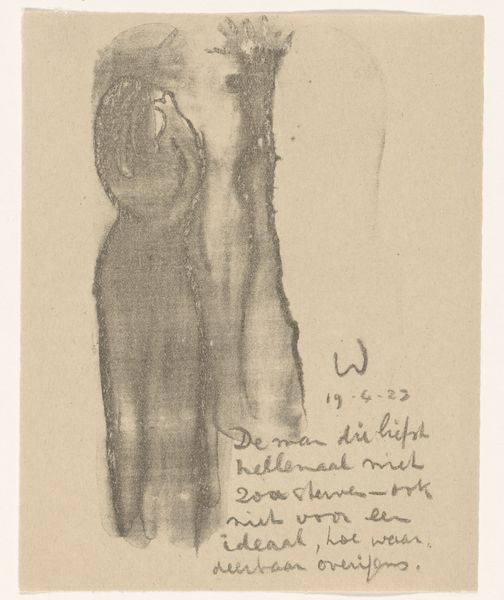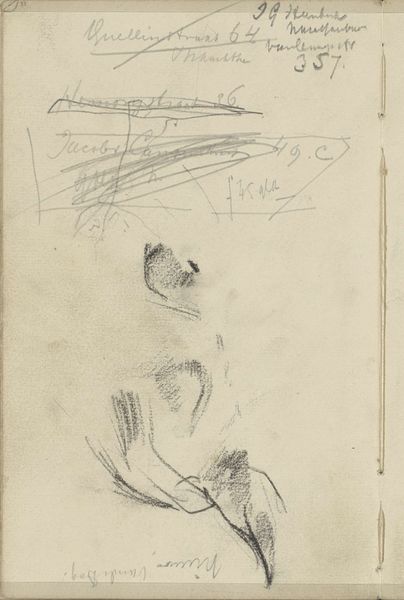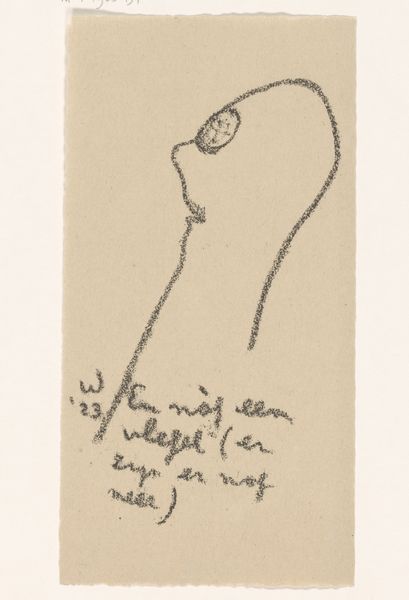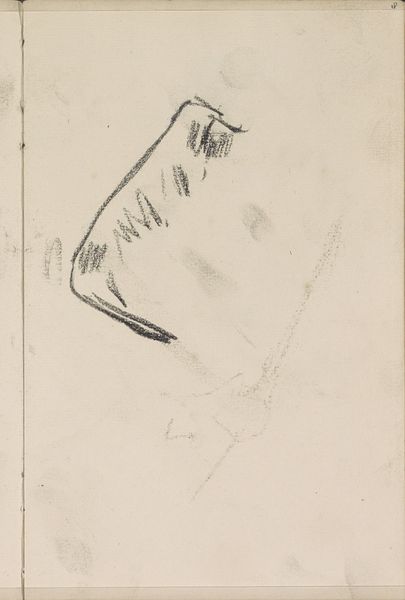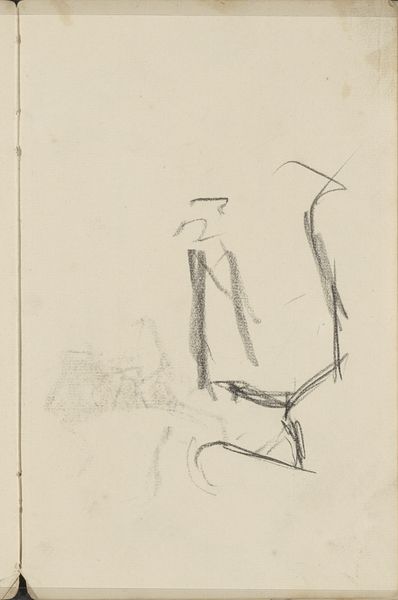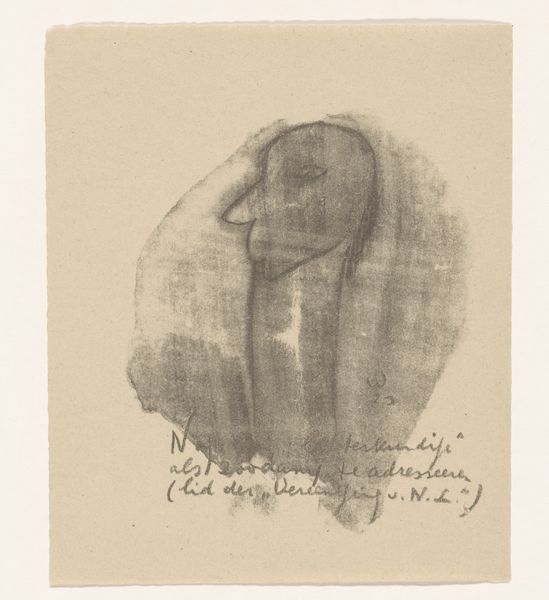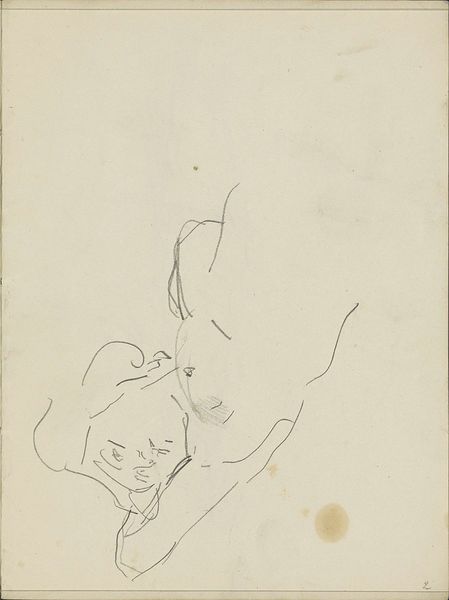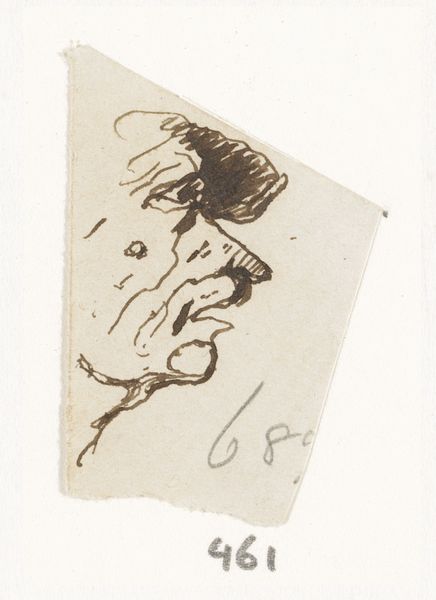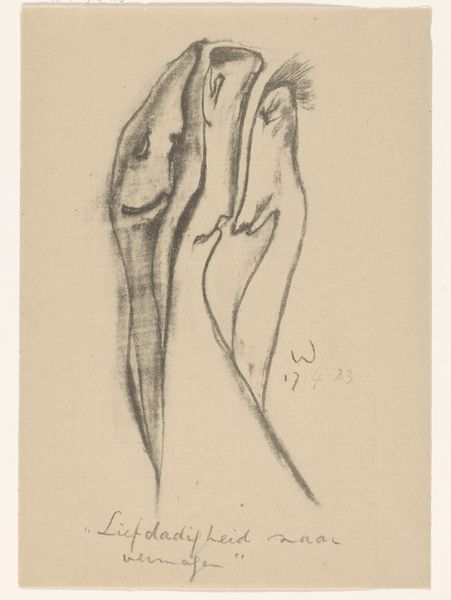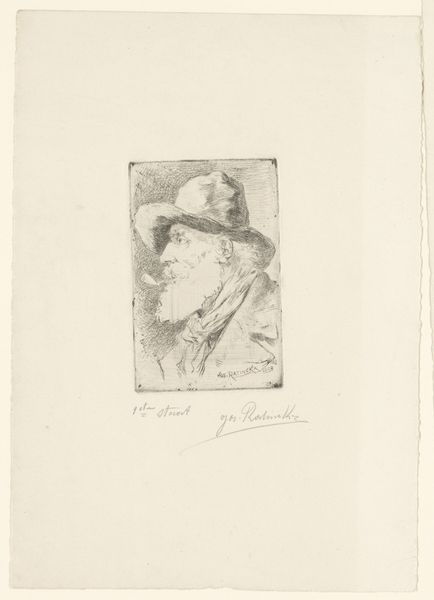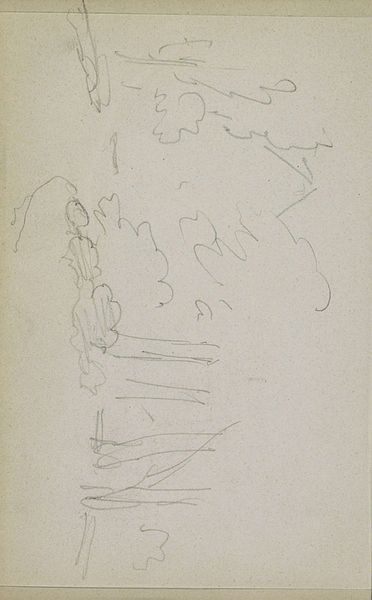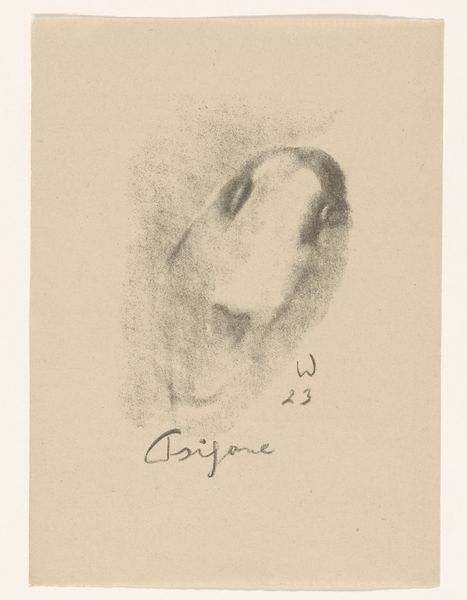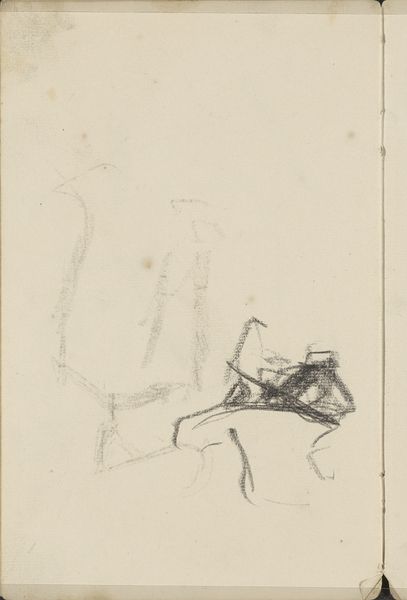
drawing, paper, ink
#
drawing
#
figuration
#
paper
#
ink
#
pen-ink sketch
#
abstraction
#
sketchbook drawing
#
modernism
Dimensions: height 190 mm, width 154 mm
Copyright: Rijks Museum: Open Domain
Editor: So, this is Erich Wichmann's "Geabstraheerde figuur," or "Abstracted Figure," from potentially 1923 or 1924. It's an ink drawing on paper, and the title is certainly fitting! It feels almost ghostly in its abstraction. How do you interpret this work in its historical context? Curator: Well, looking at this sketch, what immediately strikes me is its place within early Modernism, and particularly its socio-political roots. Can you read the text inscribed at the bottom? Editor: I think it says, roughly translated, "Reading: by, about and for women; why not?" Curator: Precisely! That inscription is key. The work becomes a statement about the evolving role of women in society, a challenge to established patriarchal structures. Wichmann wasn't simply creating an abstract figure; he was engaging with the pressing social issues of his time, contributing to a visual dialogue about women's voices and intellectual contributions. Consider the formal abstraction - is it perhaps mirroring the societal abstraction or suppression of women? Editor: That’s a great point. So, the abstraction itself becomes a kind of visual argument? The simplification forces us to consider the underlying subject. Curator: Exactly. Art in the early 20th century was frequently engaged in these kinds of dialogues, especially within politically progressive circles. How do museums affect pieces like these when interpreting history? Editor: It shows a shift to making previously suppressed conversations the new focus of historical narratives, especially in regards to artwork produced within Modernism. That is fascinating. Thank you! Curator: A worthwhile contemplation!
Comments
No comments
Be the first to comment and join the conversation on the ultimate creative platform.
